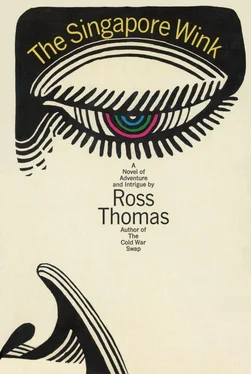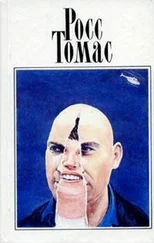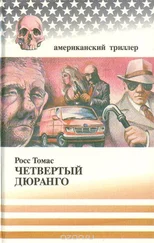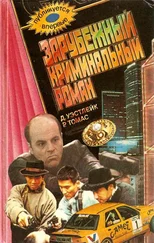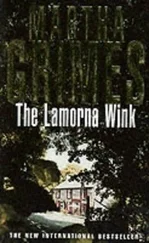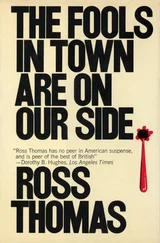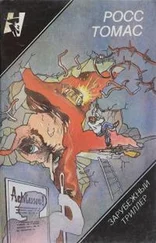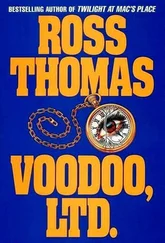Singapore, which has some aspirations of becoming the New York of Southeast Asia, is fairly new as cities go, having been founded by Sir Thomas Stamford Bingley Raffles in 1819. That, if you don’t count what was there before the Javanese leveled it during a raid in 1377, makes Singapore younger than both New York and Washington, but older than either Dallas or Denver. It likes to think that it offers “instant Asia” to the touring Garden Club from Rapid City, South Dakota. A more apt description might be “Asia without tears,” because the water can be drunk from the tap, the city is fairly clean, there are no beggars, but numerous millionaires, and almost everybody that a tourist encounters either speaks or at least understands English.
I was telling all this to Carla Lozupone as we sipped our Singapore Slings in the Elizabethan Room’s small, comfortable bar.
“What else has it got?” she asked.
“The world’s fifth largest port — or perhaps busiest, I’m not sure. A hell of a naval base which the British are giving up soon because they can’t afford it now, any more than they could afford it when they built it in the twenties and thirties—”
“That’s the one where the guns were all pointed the wrong way during World War II, isn’t it?” she asked.
“Towards the sea,” I said. “The Japanese walked and pushed their bicycles down through Malaya which was supposedly impenetrable and there wasn’t much that the British could do about it.”
“So what is it now?”
“What?”
“Singapore.”
“It’s a republic now. Eight or nine years ago it was a crown colony, then a self-governing state under British protection, then a member of the Malaysian Federation until it was kicked out in 1965. Now it’s a republic.”
“It’s a little small, isn’t it?”
“A little.”
Carla tried her drink again, lit a cigarette, and looked around the bar which, at three o’clock in the afternoon, was almost empty. “Do you think he ever comes in here?”
“Sacchetti?”
“Yes.”
“I don’t know. I didn’t even know he was alive until four days ago. But if he can show his face, I suppose that he’d come here. It’s popular and stylish and Angelo, as I recall, always liked places like that.”
“I knew he was alive six weeks ago, perhaps even seven,” she said.
“How did you find out?”
“One of my old man’s associates heard about it. You can substitute anything you want for associates.”
“You didn’t choose your parents,” I said.
“No, but one of them tried to choose my husband.”
“He seemed to have had his reasons.”
“Reasons,” she said. “All the wrong ones.”
She was wearing a simple, yellow sleeveless cotton dress which was probably more expensive than it looked. When she turned in her chair to look at me the dress tightened across her breasts and I could tell that she still didn’t have much use for brassieres.
“Tell me something,” she said. “What happens when you find Angelo? Are you going to beat up on him, as the boys down on the corner used to say?”
“What good would that do?”
“I don’t know,” she said. “Therapy maybe. It might cure your St. Vitus dance or whatever it is that you’ve got.”
“I have to find him first.”
“When do you start looking?”
“Tomorrow,” I said.
“Fine,” she said and drained her glass. “That gives me plenty of time to have another one of these.”
I ordered two more of the drinks that I didn’t much care for but which seemed to be the thing to do the first day in Singapore. When they came, Carla took a swallow of hers and lit another cigarette. There were six of them in her ashtray and we had been there less than forty-five minutes.
“You smoke a lot,” I said, keeping up my end of the conversation.
“I’m nervous.”
“About what?” I said.
“About Angelo.”
“Why should you be? The way you tell it, you’re just along for the ride.”
“Angelo may not think so,” she said.
“So?”
“How well do you know him?”
“That’s what everybody asks me,” I said.
“All right. Now I’m asking. How well do you know him?”
“Not well. Not well at all. We worked together a few times. I think he once bought me a drink or I bought him one. I’m not sure which.”
She found a flake of tobacco on her tongue, picked it off, and flicked it into the ashtray. She did it as well as or better than any woman I had ever seen.
“So you don’t know him?”
“No.”
“I do.”
“Okay. You know him.”
“He has something going for him here in Singapore, doesn’t he? I mean he has a Sacchetti-type thing going.”
“So I understand.”
“And it’s making money,” she said. “Otherwise he wouldn’t stay.”
“I’ve heard that, too.”
“I know this about Angelo. If he’s making money, he’s not doing it legitimately. That’s number one.”
“What’s number two?”
“If anyone gets in his way, he’ll walk on them.”
“Don’t tell me you’re planning to get in his way?”
She didn’t answer for a moment. Then she looked at me and her face was no longer pretty. It was as if she had slipped on a pale mask that had been designed to portray only one emotion and that was an intense dislike that bordered on hatred. When she finally spoke, her voice was cold and somehow remote.
“I don’t know if I’ll get in his way or not,” she said. “It depends.”
“On what?”
“On what he says after I talk to him.”
“When do you plan to do that?”
“As soon as possible.”
“What do you plan to talk about, old times in New Jersey?”
She shook her head. “I have a few questions.”
“Only a few?”
“Three. Maybe even four.”
“And if his answers are correct?”
She stared at me again, this time as if I were some stranger who had made her a particularly indecent proposal.
“You don’t understand, Cauthorne.”
“Understand what?”
“There aren’t any right answers to my questions. There aren’t any right answers at all.”
Just like a couple of well-heeled American tourists determined to discover the real Singapore, we had dinner that night in Bugis Street which runs through one of the Chinese sections. The two- and three-story buildings that line the street are about the size of a low-cost American row house, except that as many as fifty persons might be living inside, or at least sleeping there. This forces the cooking to be done outside, virtually on the sidewalk. The specialties are displayed in stalls and served at small tables covered with fairly clean white cloths.
It was the dinner hour. Later, the street would become a market center where the stalls would sell sport shirts and razor blades instead of eight-inch prawns and steamed cockles. We found a table, sat down, and almost immediately a young Chinese appeared, carrying two hot scented towels in wooden tongs.
“What’s this for?” Carla said.
“You’re supposed to be hot and sweaty,” I said. “You can dry yourself off with it.”
I asked the man who had brought the towels what his specialty was and he claimed that he served a most remarkable roast duck. We decided to try the duck as well as some pau , which are riceballs that contain meat and prawns heavily spiced with chilis and sweetened with something that tastes like plum sauce. We began with a soup that I couldn’t identify but which turned out to be almost as good as our duck specialist promised it would be. The man who sold ducks dispatched a youngster for the pau and the soup which were the specialties of a couple of stalls farther down the street. The service was good, the price was wonderful, the duck was excellent, and if you didn’t mind a motorcycle or two going off in your ear, the blast of what seemed to be a hundred transistor radios, all tuned to different stations, and an occasional elbow in your neck from the passing crowd that thronged the street, it was all very nice, friendly and, I suppose, quite Chinese in a touristy sort of way.
Читать дальше
